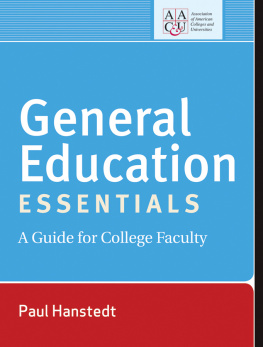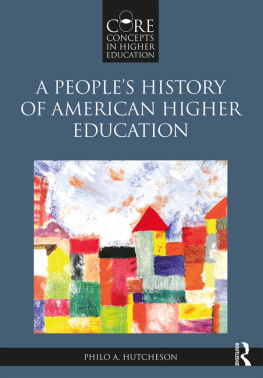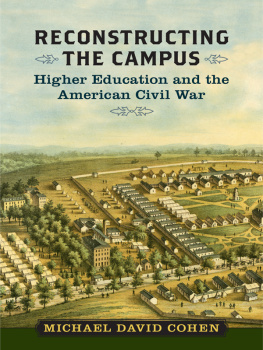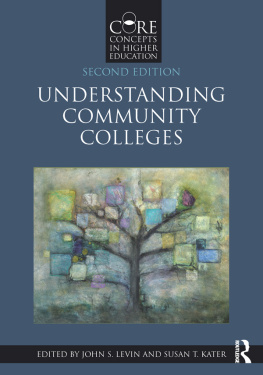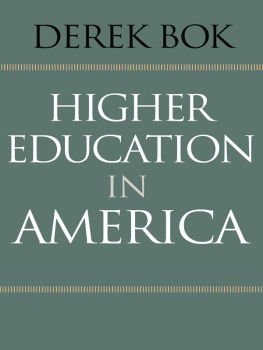Copyright 2012 by John Wiley & Sons, Inc. All rights reserved.
Published by Jossey-Bass
A Wiley Imprint
989 Market Street, San Francisco, CA 94103-1741www.josseybass.com
No part of this publication may be reproduced, stored in a retrieval system, or transmitted in any form or by any means, electronic, mechanical, photocopying, recording, scanning, or otherwise, except as permitted under Section 107 or 108 of the 1976 United States Copyright Act, without either the prior written permission of the publisher, or authorization through payment of the appropriate per-copy fee to the Copyright Clearance Center, Inc., 222 Rosewood Drive, Danvers, MA 01923, 978-750-8400, fax 978-646-8600, or on the Web at www.copyright.com. Requests to the publisher for permission should be addressed to the Permissions Department, John Wiley & Sons, Inc., 111 River Street, Hoboken, NJ 07030, 201-748-6011, fax 201-748-6008, or online at www.wiley.com/go/permissions.
Limit of Liability/Disclaimer of Warranty: While the publisher and author have used their best efforts in preparing this book, they make no representations or warranties with respect to the accuracy or completeness of the contents of this book and specifically disclaim any implied warranties of merchantability or fitness for a particular purpose. No warranty may be created or extended by sales representatives or written sales materials. The advice and strategies contained herein may not be suitable for your situation. You should consult with a professional where appropriate. Neither the publisher nor author shall be liable for any loss of profit or any other commercial damages, including but not limited to special, incidental, consequential, or other damages. Readers should be aware that Internet Web sites offered as citations and/or sources for further information may have changed or disappeared between the time this was written and when it is read.
Jossey-Bass books and products are available through most bookstores. To contact Jossey-Bass directly call our Customer Care Department within the U.S. at 800-956-7739, outside the U.S. at 317-572-3986, or fax 317-572-4002.
Wiley also publishes its books in a variety of electronic formats and by print-on-demand. Not all content that is available in standard print versions of this book may appear or be packaged in all book formats. If you have purchased a version of this book that did not include media that is referenced by or accompanies a standard print version, you may request this media by visiting http://booksupport.wiley.com. For more information about Wiley products, visit us www.wiley.com.
Library of Congress Cataloging-in-Publication Data
Hanstedt, Paul, date
General education essentials : a guide for college faculty / Paul Hanstedt ;
foreword by Terrel L. Rhodes.
p. cm. (The Jossey-Bass higher and adult education series)
Includes bibliographical references and index.
ISBN 978-1-118-32185-0 (pbk.); 978-1-118-32953-5 (ebk); 978-1-118-32954-2 (ebk); 978-1-118-32955-9 (ebk)
1. Universities and collegesCurriculaUnited States.Planning. 2.
General educationUnited States. I. Title.
LB2361.5H36 2012
378.199dc23
2012004824
Credits
Chapter 5:
Hollis, Midterm Assignment from Chemistry and Crime. Taught Spring 2011 at Roanoke College, Salem, VA.
Poli, DNA Cartoon Assignment from How Do Living Organisms Evolve. Taught Spring 2011 at Roanoke College, Salem, VA.
Ramesh, Second Group Presentation Assignment from Demystifying Foods: Why We Eat What We Eat. Taught May 2011 at Roanoke College, Salem, VA.
Appendix B: Price, Syllabus for INQ 250: Scientific Reasoning I: The Way Things Work: Sky Diving and Deep Sea Diving. Taught Fall 2011 at Roanoke College, Salem, VA.
Appendix C: Mehrotra, Syllabus for INQ 260: Traveling Without Leaving: Global Sociology. Taught Fall 2011 at Roanoke College, Salem, VA.
Appendix D: Brogan, Syllabus for INQ 260: Elite Deviance: Crime in the Suites. Taught Spring 2010 at Roanoke College, Salem, VA.
Appendix E: Lee, Syllabus for INQ 240: Statistical Reasoning: Does Gun Control Save Lives? Taught Fall 2009 at Roanoke College, Salem, VA.
Appendix F: Childers, Syllabus for INQ 240: Statistics and Botany. Taught Fall 2009 at Roanoke College, Salem, VA.
The Jossey-Bass
Higher and Adult Education Series
Association of American Colleges and Universities
AAC&U is the leading national association concerned with the quality, vitality, and public standing of undergraduate liberal education. Its members are committed to extending the advantages of a liberal education to all students, regardless of academic specialization or intended career. Founded in 1915, AAC&U now comprises more than 1,250 member institutionsincluding accredited public and private colleges, community colleges, and universities of every type and size.
AAC&U organizes its work around five broad goals:
- A Guiding Vision for Liberal Education
- Inclusive Excellence
- Intentional and Integrative Learning
- Civic, Diversity, and Global Engagement
- Authentic Evidence
Through its publications, meetings, public advocacy, and programs, AAC&U provides a powerful voice for liberal education. AAC&U works to reinforce the commitment to liberal education at both the national and the local level and to help individual colleges and universities keep the quality of student learning at the core of their work as they evolve to meet new economic and social challenges. With a nearly one-hundred-year history and national stature, AAC&U is an influential catalyst for educational improvement and reform.
AAC&U has worked intensively on the issue of general education reform since the early 1980s. AAC&U general education initiatives aim to ensure that every undergraduate student experiences a relevant and challenging general education curriculum. In addition to working with campuses to strengthen their general education programs overall or to reform specific aspects of them (e.g. science requirements or diversity requirements), AAC&U initiatives address strengthening general education for transfer students, embedding high expectations and meaningful assessment of student learning, and general education as essential for enhancing curricula and pedagogy. Every year, AAC&U sponsors a spring meeting on General Education and Assessment in February and a summer institute for campus teams on the same topic in June.
For information about all of AAC&U's resources, see: www.aacu.org
Foreword
As a twenty-five-year-plus faculty member, it was a pleasure to read General Education Essentials; I wish I had such a resource when I began my university teaching career. Of course I had been an undergraduate student, so I knew what general education was, what a major meant, electives, and so forth, but I had no idea that there actually were concepts and theories that underlay and justified general education as an important, integral part of a quality undergraduate education. I thought that general education was a set of courses students were required to take so we would be exposed to all the areas traditionally associated with being a well-rounded, educated person. Therefore, as a faculty member I simply had to teach my introductory course as I always did; students could take the course and learn about the basics of American government and be much better persons as a result. Little did I know at the time.
Paul Hanstedt has a deft touch in crafting this book on general educationthat too-often least-valued part of an undergraduate education. Before students enter college they are told in a variety of ways that general education is something to get out the way as soon as possible in order to get on to the really important part of their educationthe major. Hanstedt, though, manages to bring to bear the latest research on the purposes and impact of general education for student learning and a whole set of practical examples and approaches to teaching general education classes that, together, hold the potential to improve faculty pedagogy and students' undergraduate experience. As a long-time faculty member with both domestic and international teaching experience in large and small colleges, Hanstedt draws upon his experience in multiple environments for his insights into reformulating general education. As a literature and writing professor, he brings an ease with language and an ability to describe and portray general education as a living and breathing integral part of the preparation of students for success in a complex world of change; a world that also requires our approach to and representation of general education to change as well.

